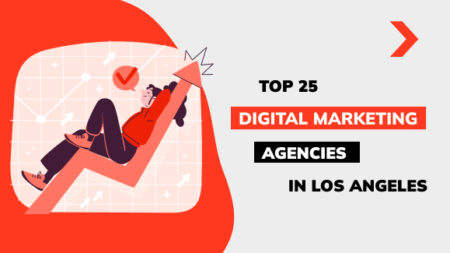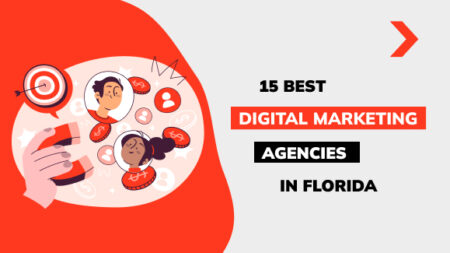Reputation Marketing: Build Trust And Success
Even if you are highly visible, you must rely on managing your reputation because your brand image is a differentiator. Positive reviews, testimonials, and other brand assets that readily sway opinions are typically used in this strategy to promote services.

Learn the definition of online reputation marketing, its advantages for your business, and how to include it in your marketing to improve SEO strategies and sales from reviews.
What is Reputation Marketing?
The practice of employing brand assets from your reputation as promotional materials is known as online reputation marketing (ORM). Testimonials, positive reviews, ratings, community awards, and social signals are examples of business assets.
Brands far too often neglect to manage their value until they’re confronted with a barrage of negative reviews and other detrimental material. This way, a strategy gives you the ability to build credibility and a positive online reputation before you end up in a crisis.
What Types of Content Make Up Your Reputation?
You can benefit from user-generated content (UGC), and one of the most effective types of UGC is customer reviews. You’re more likely to attend a cabaret with a line since users trust one another. UGC has a strong online reputation due to the influence of client viewpoints and word-of-mouth advertising.

However, don’t count on user-generated content too intensely. Accessing review sites is helpful, but they’re not the only base of your image. Look for methods to grant positive experience using strategic actions.
Why Reputation Marketing Matters
Corporate reputation now entails more than just market dominance; it’s a gauge of how all parties involved see a brand. Market behavior expressed in marketing communications makes up your image.
Reputation is critical and erases risks if it’s carefully managed. Brands with well-built reputation strategies will achieve fueled SEO results, like increased online presence, decision-making intent, and advocacy from their community.
Find out your brand’s online reputation score
The total score is calculated by user perceptions of your company, and UGC that shows up in brand searches has an impact as well. It in turn examines how crucial it is to manage this score to preserve your reputation and the ability to compete. A brand that has a respectable online reputation score is seen as credible by users. It indicates that they can get accurate and trustworthy information about the brand when they seek it online. To get a higher score, you must spend time in customer service and efficiently address negative reviews.
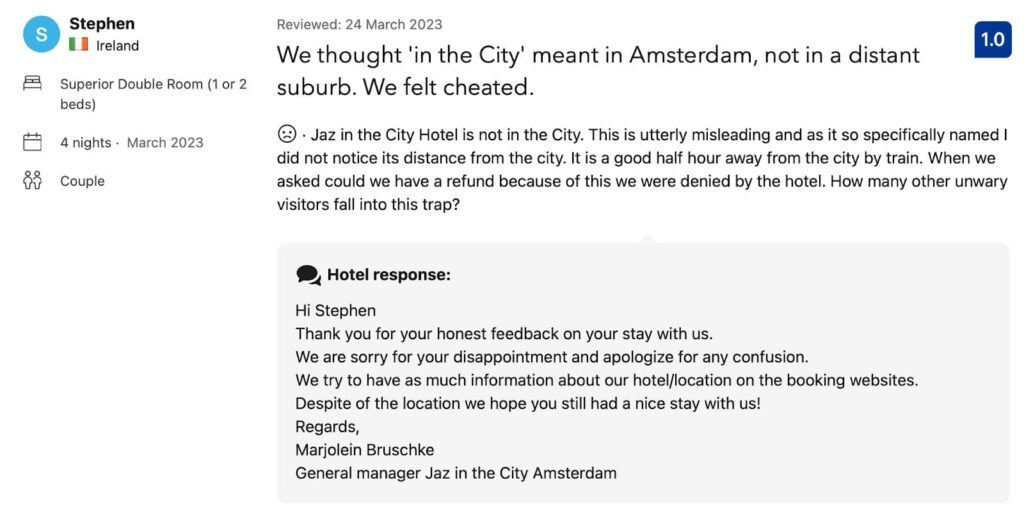
Reputation Marketing vs. Reputation Management
Even though there are a lot of similarities, online reputation marketing usually focuses on showing sentiments to bring sales. Reputation management also does it, though it falls under the broad category of reputation management services.
Benefits like increased trust, decreased business risk, better efforts, and raised profit can result from either strategy. Reputation marketing is more proactive; it comprises raising the number of good mentions and promoting them on a review site, social media accounts, and other networks.
Reputation Marketing: Keys to Success
Maintaining a positive online presence is the goal of this dynamic and diverse practice. Reputation marketing involves more than just eradicating unfavorable perceptions; it also entails carefully sharing your digital narrative. When assessing your marketing strategy, keep the following in mind:
Monitor and Manage Brand Reputation
Tracking calls for attention and your prompt action, both of which need to be incorporated into any successful ORM strategy. Sentiment analysis on social media is one method of calculating the score. This helps grasp what users are thinking and how they feel about your brand.
You can perform sentiment analysis by examining the general tone of reviews, comments, and postings. Additionally, you can monitor particular keywords to see how you use them for your brand.
Tools for Tracking Brand Mentions and Reviews
Monitoring your online reputation extends well beyond the channels you own. The majority of firms already monitor their direct feedback channels, review sites, such as Trustpilot or Yelp, and comments on social media. Google Reviews is a platform where users typically look for ratings to decide if the service of the company is right for them. You can also access Brand24 to keep a close eye on rivals and crisis factors that are brought on by disgruntled clients.
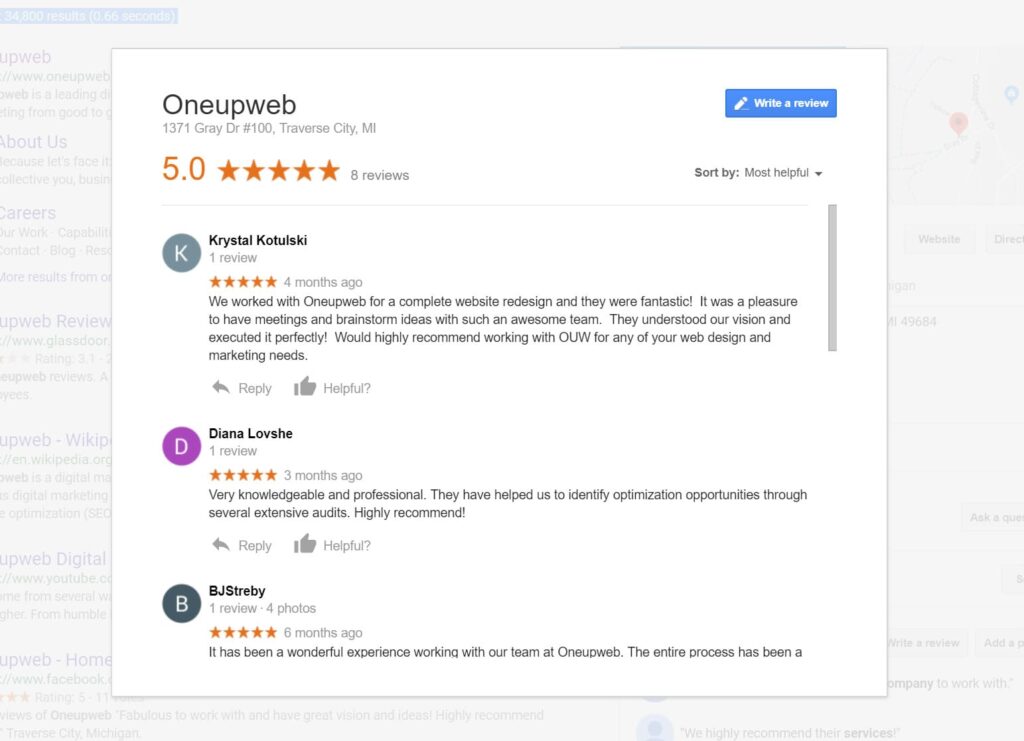
Responding to Reviews
95% of consumers read product reviews before buying, making them an essential touchpoint for consumer engagement. Given this information, it’s clear that getting potential customers to read good reviews is critical to having sales.
Timeliness is the key to responding — if you’re quick in answering, it signals your concern for their views. Review management tools allow you to consolidate timely input and receive notifications in real time.
Have a Crisis Communications Plan
A crisis in the business world is a situation that jeopardizes the financial stability of companies, their industries, and also the main stakeholders.
Plans for crisis communication serve as blueprints for the company so that they can react quickly in times of crisis. To put it another way, this crisis plan outlines actions and preventive measures for the future to be ready for and handle issues.
Steps to Create an Effective Crisis Plan
Breaking down a document into manageable steps will help you discover more concerns without being taken aback by the possibility of a disaster.
The individuals who will act in a crisis are your team. Each employee must be assembled at the outset of the crisis plan so that everyone is familiar with the specifics. To avoid delays, you must also consult a risk registry to assess the likelihood of upcoming emergencies.
How to Respond to Negative Publicity
Ignoring or denying the bad press is the worst thing you can do since it’ll simply exacerbate it and lead to criticism. Instead, express concern for the publicity and acknowledge the persistent problem.
To resolve the issue and stop it from happening again, you must also take remedial action. Be sure that the actions you do are timely and noticeable.
Negative reviews can also be used to revise your crisis management strategy and get ready for new difficulties; utilize them to develop and get better.
Identify and Activate Brand Promoters
Finding promoters both inside and outside of your company to give their viewpoints is crucial. To build more meaningful relationships with leads and clients, brands introduce ambassador programs.
A customer who is so enthusiastic about your product that they’re eager to spread the word about it could be your promoter. It can be someone who often visits your location, responds to posts, or is picked based on a review of users.
Who Are Brand Promoters and Why They Matter
Brand ambassadors are those who promote a brand, increasing its visibility, enhancing its reputation, and persuading potential customers. They share user experience with their friends and social media followers, and they discuss a service that the company offers. They’re valuable partners that could provide reviews, which are a great investment for increased online reputation.

Encouraging Satisfied Customers to Leave Reviews
Asking in person is one of the most direct ways to gather reviews; it works best when the person’s attitude is clear and the conversation is new. A personal request doesn’t always get denied and feels more true. You could send a follow-up email urging your online customers to write their points of view for you, whether you do it manually or as part of your campaign.
Leveraging Influencers
Some ambassadors can be formed from chatting you have with them rather than through their commercial relationships with you — it’s possible to create more user-generated content by using their profiles.
Promoters who share your values and have a sizable online presence should be on your shortlist. Examine how many followers they have and how active they are on channels that appeal to your target market.
Prevent Negative Feedback
Even a single comment can be interpreted as callous if it’s deleted or ignored. So, when you take the time to interact, address their issues, and make an effort to regain their confidence, they appreciate it.

Customers will be able to vent their complaints to you in this way, which will enable you to address their problems and erase negative feedback.
Delivering Exceptional Customer Service
Always react with compassion and never give the impression that you’re making explanations or defending yourself. Instead, express regret and acknowledge their feelings. If at all possible, provide support by phone call because clients may want to speak when they’re having issues. Live chat is also one of the fastest ways to get the answers users want and prevent impulsive reviews.
Proactively Addressing Customer Concerns
A positive image is created when you show a willingness to put things right. Give detailed feedback on how to fix the problem — it means providing a discount, replacement, or private follow-up.
To talk about the problem in more detail, you can also ask the reviewer to get in touch with you using a private channel, such as phone or email. This enables you to resolve the issue privately and if they’re happy, they can change their opinions on a review site.
Optimize Your Brand Presence Online
Enhance your content to guarantee that information and reviews appear higher in search engine results. Google users will pay more attention to your page if algorithms consider your content to be an authority for the specified target keywords.
You’ll be able to own more branded search results from all the effort you put into building your brand. Positive material will appear at the top of a user’s search results when they type in a brand name.
Enhancing Your Google My Business Profile
Setting up a GMB account is essential for any business with a local address since it gives you access to users and allows them to submit reviews.
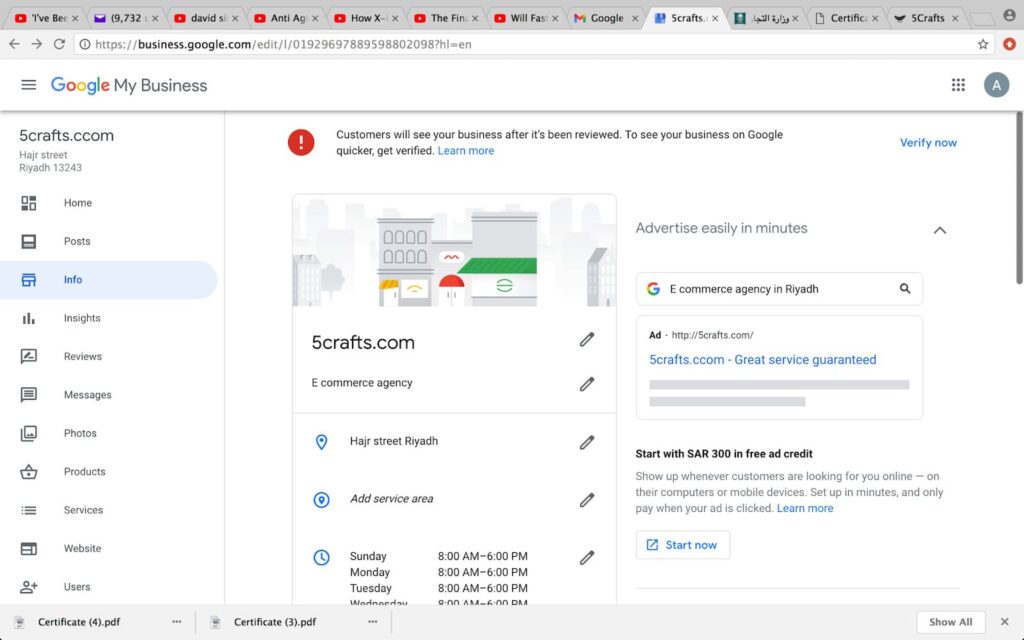
Users can ask you questions straight through your business listing thanks to the question-and-answer feature as well. But keep in mind that anyone can respond, so check the inquiry mailbox frequently.
The Role of Social Media
For a lasting online reputation, social proof — such as user reviews, testimonials, and user-generated content through media channels — must be considered. By pushing the audience to examine their experiences with your product, you’ll increase the market reach.
UGC, such as images and videos, also gives the brand more authenticity; this natural marketing boosts the business’s trust and reputation online.
Content Strategies to Strengthen Brand Authority
Consider the intended users’ problems and write in a way that addresses them and sets you apart. Additionally, users may quickly determine who has pertinent and useful things to share with them.
Sharing only helpful material that puts quality above quantity demonstrates that any form of authority in your digital marketing may be attained.
Why Companies Need to Focus on Reputation Marketing
Because it can provide a substantial competitive edge, reputation marketing is important. It sets a brand apart from competitors in the market and offers customers a compelling value proposition.

A good reputation increases brand visibility and recognition, which boosts repeat business and client loyalty. A solid online reputation can inspire trust in a business, which can result in new opportunities and partnerships.
The Impact of Online Reviews on Consumer Decisions
They give us practical information about a product or service, giving us an idea of what to anticipate before committing. While negative reviews alert users to potential issues, good reviews reassure consumers that others have had a positive experience. Before making a purchase, they think about whether a product is necessary by reading online reviews of both types, which provide real insights.
Build Trust and Credibility
Positive reviews and testimonies from people who have already bought and used a product or service inspire validation in prospective buyers. It allays any doubts or anxieties potential customers may have, boosting confidence in the brand. Online reviews from customers can also show how open and receptive you are, which fosters relationships.
The Role of Social Media in Brand Reputation
Reputation marketing on social media allows businesses to provide outstanding customer service. It increases consumer trust and establishes a reputation for dependability.
Replying to reviews and posting helpful content online can help a brand get visibility and rank higher in search results when you’ve active social media marketing. Observing what users have to say and promptly solving any issues shows that your brand values and wishes to put things right.
SEO Benefits of a Strong Online Reputation
People’s perceptions of your brand are taken into consideration by search engines like Google. Machines see your brand as relevant and trustworthy when it has a lot of favorable reviews, is active on social media, and is regularly cited online. Building a positive online reputation through every online review tells Google that people trust your company, which improves SEO.
FAQ
Why do companies need to focus on reputation marketing?
The reason for adopting this advertising practice is because people believe what other clients have to say about your company. This affects their choice to purchase from your business. Most individuals would buy from a business that has a four-star rating on review sites. So, building and fostering a solid reputation for your company is also crucial to its online presence expansion.
What are examples of reputation marketing?
Businesses with high brand reputations are frequently cited, including Google, Samsung, and Microsoft. Consistent branding, superior customer service, and a dedication to high-quality goods and services are the basis for a well-managed web reputation upon which these brands have established their reputations and strong SEO.
What factors contribute to an effective ORM strategy?
The public’s general opinion about a business or brand is centralized by ORM. Brands’ social media presence, the caliber of the experiences they offer, and the consequences of their prior choices and actions are just a few of the variables that might affect their reputation. It is mostly influenced by your social media presence and client service.
How does social media impact ORM?
You can identify unfavorable remarks and negative reviews on social media by participating regularly. A growing number of consumers are using social media to voice their complaints and express their dissatisfaction with brands or post disparaging remarks. These remarks have the potential to seriously harm your internet reputation if you’re not listening. You may eliminate the bad press that has been associated with your brand by employing our online reputation marketing (ORM) services.


